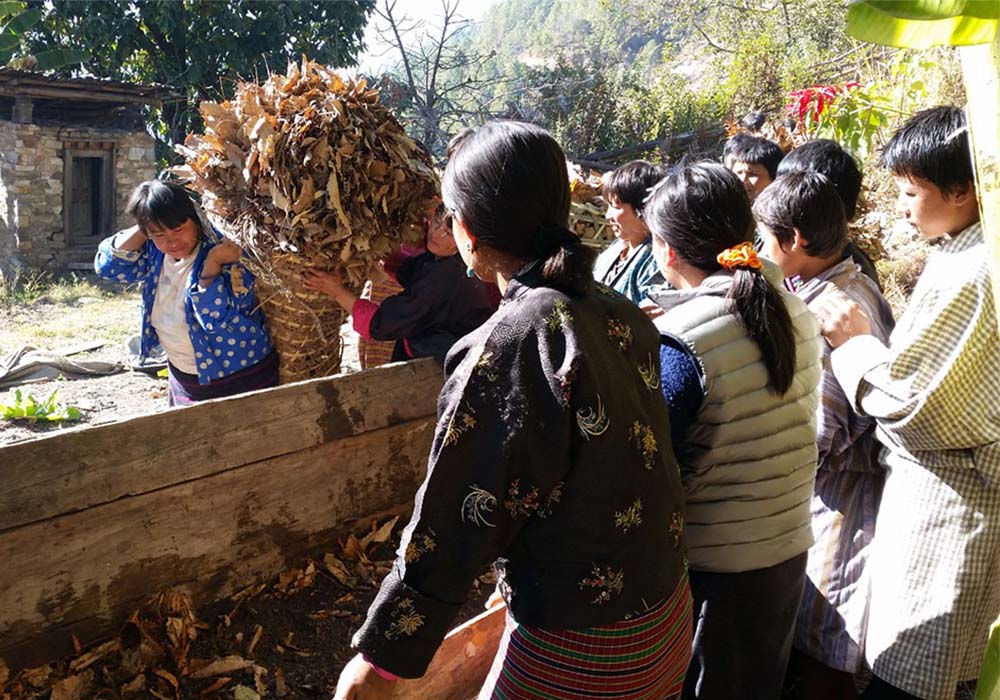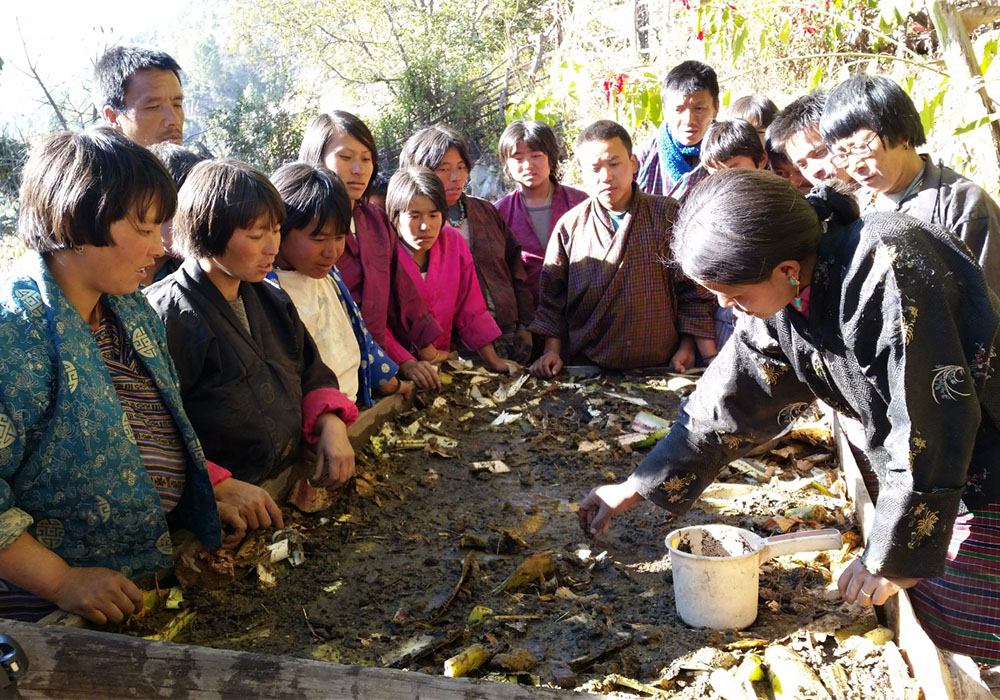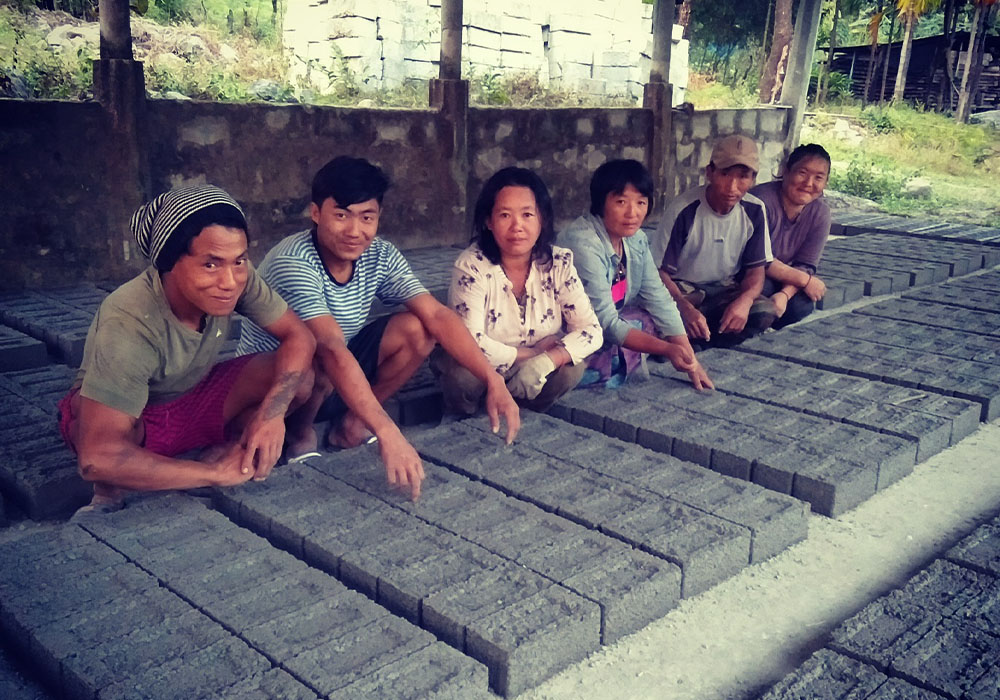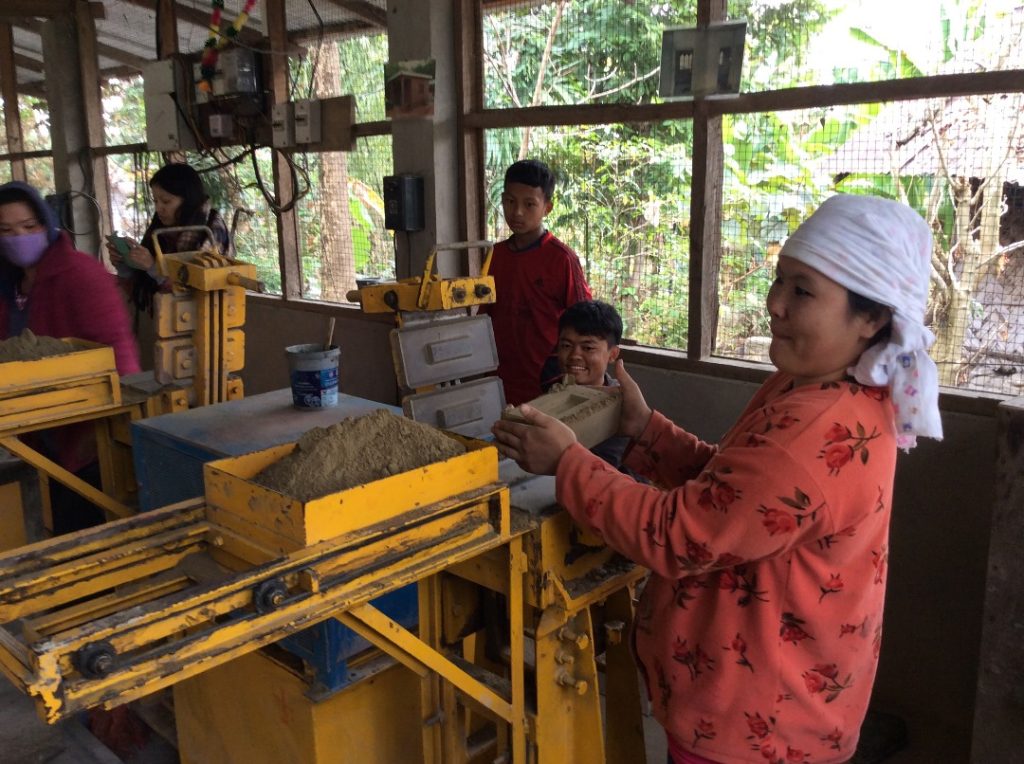Climate Change Mitigation Initiatives
a) Vermi Composting


As a nature-based solutions, organic farming practices and the on-farm production of compost and vermicompost have been actively promoted across all the Tarayana Foundation’s targeted villages. As a result, 11 groups in Kengkhar, Monggar, Chukha, Lhuentse, and Samtse have successfully elevated vermicompost production to an enterprise level. These groups now sell their vermicompost products in local markets, providing a sustainable source of income and promoting environmentally friendly farming practices.
Vermicomposting is a process that uses various types of worms, such as red wigglers, white worms, and other earthworms, to break down organic matter. This method produces a rich, nutrient-dense mixture of decomposed vegetable scraps, food waste, bedding materials, and vermicast (worm castings). The resulting vermicompost is an excellent natural fertilizer, enhancing soil health and fertility while reducing the need for chemical inputs in agriculture.
b) Fuel Efficient/ Improved Stoves


The Tarayana Foundation has taken significant steps to promote cleaner energy solutions and sustainable practices in rural areas. To address the environmental and health challenges posed by traditional open-fire cooking methods, the Foundation has supplied 1,040 fuel-efficient stoves and 500 portable cookstoves to rural communities. These stoves are designed to meet modern needs with attributes such as high fuelwood efficiency, clean combustion, no indoor smoke, and excellent heat retention capacity.
All the eco-stoves are locally manufactured, not only reducing maintenance requirements but also creating employment opportunities, providing skill development, and supporting the local economy. To further extend these benefits, the Foundation partnered with a local private firm to design and fabricate institutional stoves specifically for schools and monasteries.
Traditional open-fire cooking methods, commonly used in rural areas, have severe impacts on the environment, health, and overall well-being. Environmentally, they contribute to deforestation, leading to the depletion of forests, loss of biodiversity, and increased carbon emissions, all of which exacerbate climate change. The indoor air pollution caused by open fires is particularly harmful, especially to women and children, who are most often responsible for cooking. Prolonged exposure to smoke and pollutants can result in respiratory diseases, eye irritation, and other health issues.
Additionally, the time-consuming process of collecting firewood and cooking over open fires places a significant physical burden on women and girls. Recognizing these challenges, the Foundation has promoted clean cooking technologies like improved mud cookstoves and portable stoves to reduce the environmental impact, improve indoor air quality, and enhance the health and well-being of rural populations. Alongside these efforts, the Foundation is also raising awareness about the detrimental effects of open-fire cooking and advocating for sustainable forest management practices to mitigate its negative impacts on the environment and the communities that depend on it.
c) Energy Efficient Cooking Stoves and Biogas Units


Tarayana Foundation served as one of the local implementing partners for the Sustainable Rural Biomass Energy (SRBE) Project, executed by the Department of Renewable Energy (DRE) under the Ministry of Economic Affairs (MoEA). As part of this initiative, the Foundation trained community stove technicians with support from the DRE, leading to the installation of 1,514 improved stoves in rural households within Sarpang Dzongkhag. In addition to the stove installations, the Foundation supplied 25 biogas units to community members, further promoting sustainable energy solutions and enhancing rural livelihoods.
d) Compressed Earth Block


Compressed Earth Block (CEB) is a building material made primarily from damp soil compressed at high pressure. The CEB technology offers a cost-effective, environmentally sound masonry system. The product has a wide application in construction for walling, roofing, arched openings, eco-stoves, pavement tiles, etc. The Self-Help Group at Dechen-Pelri community owns and operates the Unit. The Unit has provided an alternate source of construction material in the Dzongkhag. With a proper marketing strategy, demand is growing from the new construction sites in the nearby areas.
